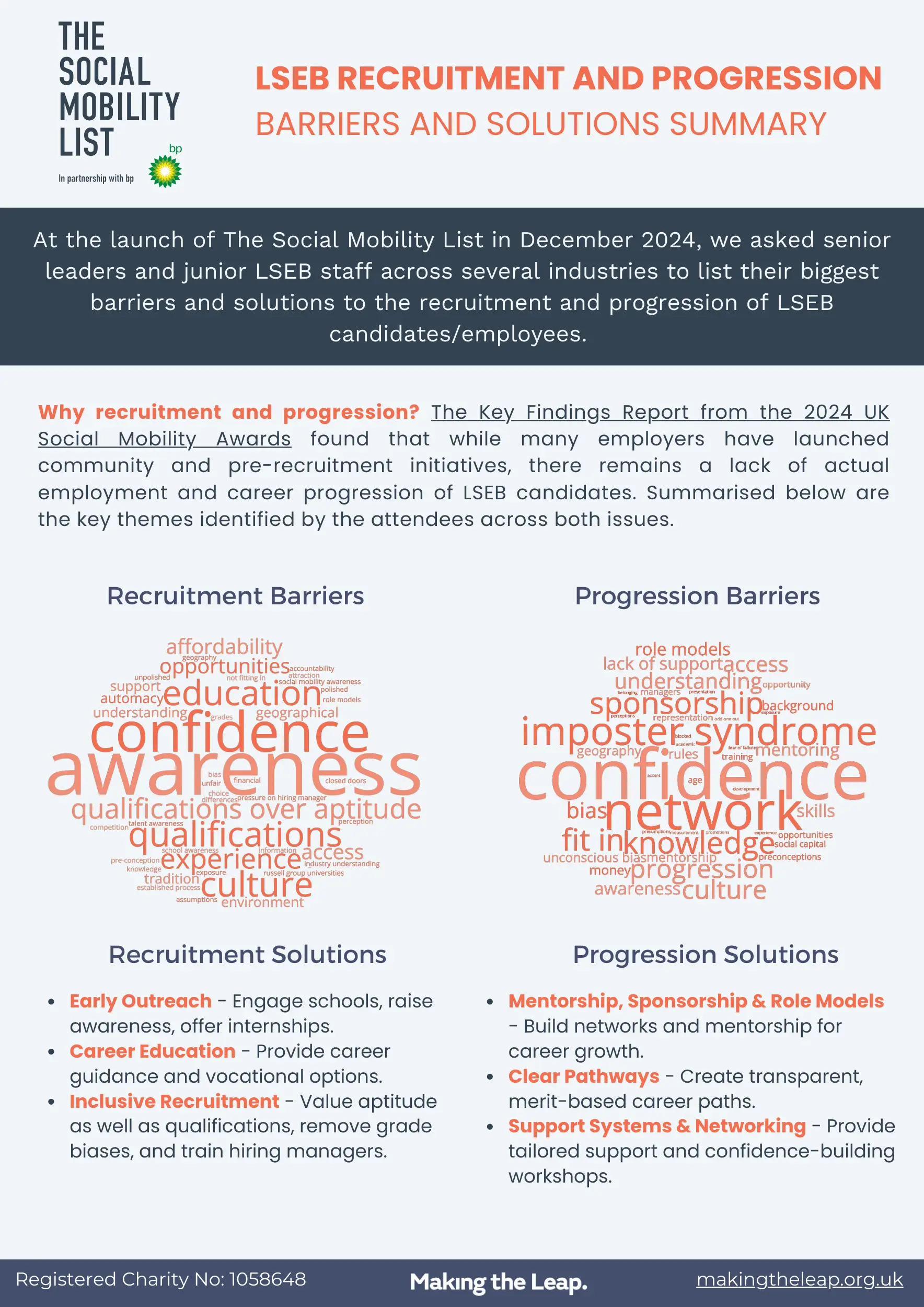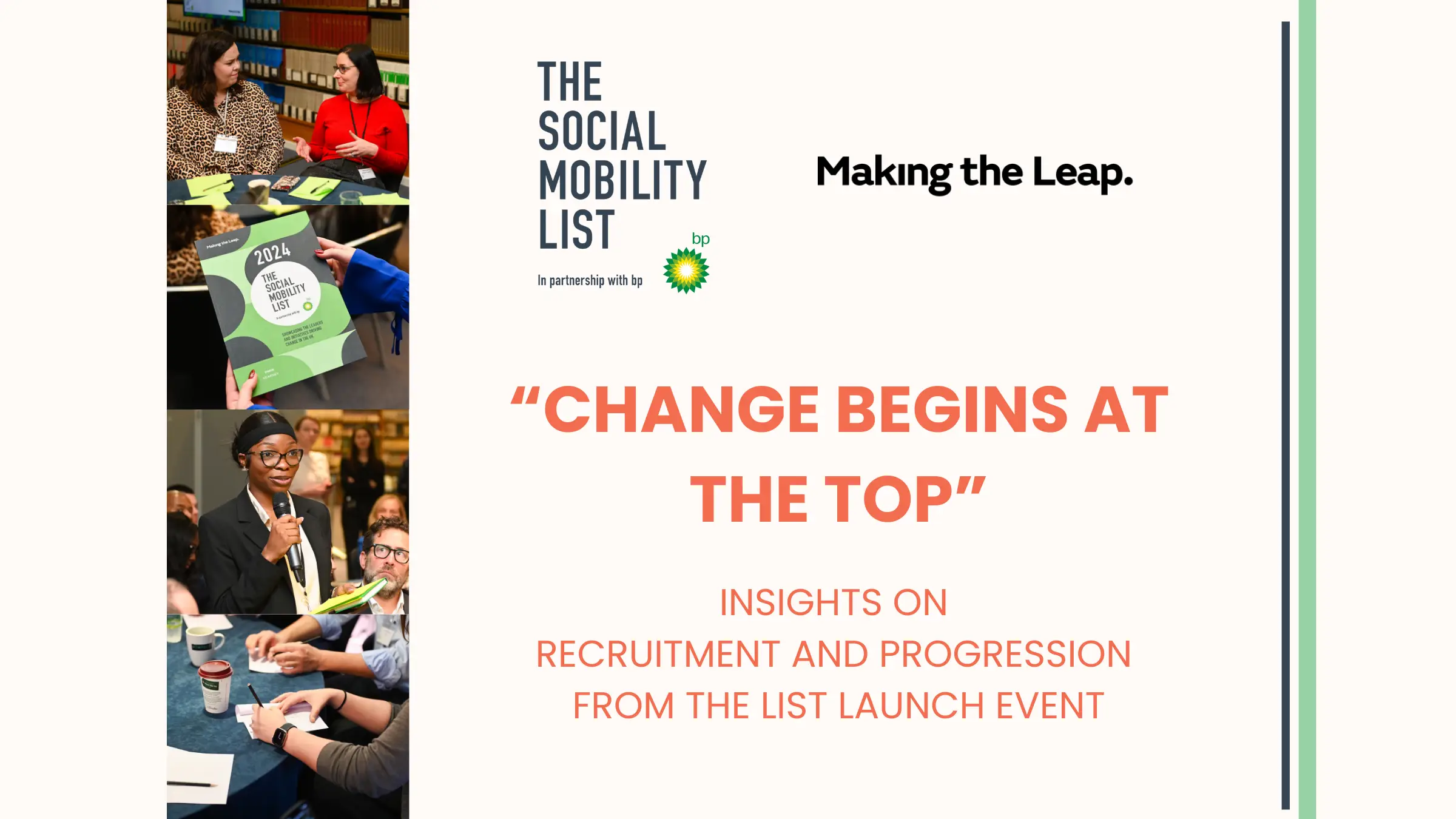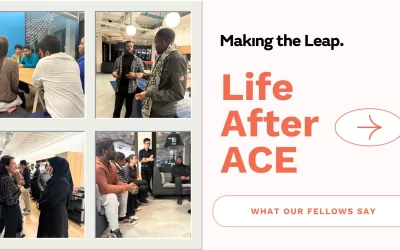At the launch of The Social Mobility List in December 2024, we asked 70 senior leaders and junior staff from less-advantaged socio-economic backgrounds (LSEBs) across multiple industries to list their biggest barriers and solutions to the recruitment and progression of LSEB candidates/employees.
Why did we focus on recruitment and progression?
The Key Findings Report from the 2024 UK Social Mobility Awards found that while many employers have launched community and pre-recruitment initiatives, there remains a lack of actual employment and career progression of LSEB candidates.
Summarised below are the key themes identified by the attendees across both issues.

What barriers and solutions were found on recruitment of LSEBs?
The findings from the working breakfast were fascinating. For recruitment, dozens of attendees noted issues with awareness of opportunities on the part of the prospective employees, and a lack of confidence. On the part of the employee, attendees identified a tendency on the part of hiring managers to prioritise traditional qualifications over potential and aptitude. To solve these issues, attendees suggested early engagement with young people to raise awareness, training for hiring managers, a removal of grade biases and more.
What barriers and solutions were found on the progression of LSEBs?
For those who are recruited, progression of those from LSEBs remains low. Attendees identified issues including confidence again, a lack of network and sponsorship, while dozens referenced a feeling of imposter syndrome that young LSEB staff may experience. To solve these issues, attendees suggested a promotion of LSEB role models, creating clear and transparent pathways based on merit, tailored support, including confidence-building workshops, and much more.
Read the full insights below, as well as advice for readers on next steps.




